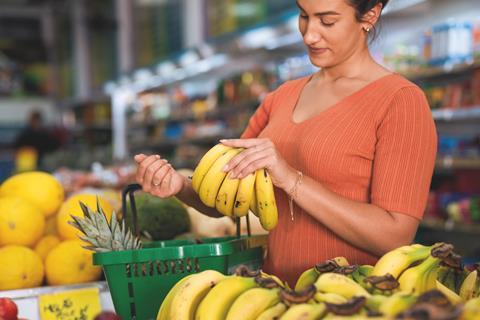Industry says the strategy of downward purchase prices should not be resumed

Representatives from the Latin American banana industry have expressed their dismay about plans by European supermarkets to reduce the price of bananas by €1.30 a box. The price would go from €16.3 to €15 per box.
Last week, Reefer Trends reported that the retailers had based their decision on a stronger euro against the dollar this year and lower freight rates. But the specialist publication said this argument is flawed and that “that at €1.08/US$1, the euro is only marginally stronger than it was last year and despite blanket indications from publications such as Drewry, the freight rate on transatlantic voyages in 2024 is not materially lower than last year”.
Corbana, the Costa Rican banana association, said the strategy of downward purchase prices should not be resumed.
“Hundreds of thousands of families in Costa Rica and Latin America depend on banana activity and export; its sustainability is of utmost importance for areas that have few job options,” said Jorge Sauma Aguilar, general manager of Corbana.
Corbana argued that growers faced growing uncertainty in 2024 due to impact of El Niño and the restrictions being imposed on sailings through the Panama Canal.
On Thursday, the Latin American Task Force for Bananas, which represents 60 per cent of banana output from Ecuador, Colombia, Guatemala, the Dominican Republic, Costa Rica, Honduras and Peru, issued a statement saying they were “deeply concerned” by the proposal.
They pointed to the “significant problems” banana farmers and exporters of the region have been experiencing significant problems since 2020, such as rising input and freight costs; the threat of TR4; drugs trafficking and the growing certification and phytosanitary burden imposed by the European Union.
“Unfortunately, supermarkets did not recognise these realities, but decided to further reduce banana prices in 2020, 2021 and 2022. These decisions, incoherent with the objective of sustainable trade, have led us, on behalf of farmers and exporters of the region affected by these unsustainable practices, to require tirelessly that supermarkets act upon their role within shared responsibility and therefore pay a fair price for bananas that recognises farming costs and sustainability requirements,” the cluster said.
“Faced with the unfortunate news that supermarkets once again seek to reduce the purchase price of bananas in 2023, we urge that shared responsibility not only to remain under discussion, but that supermarkets adopt effective measures to act upon their role within the supply chain by paying a fair price for bananas.
The cluster pointed out that the Fairtrade methodology for calculating the fair price of a banana box should be transparent, available, accepted by the European Union and it recognises production costs increases and the requirements of sustainable agriculture.
“Supermarkets actions must head in any case to act upon their role within shared responsibility and avoid heading off discussion towards third organisations and entities that do not focus on the absence of a fair price, which is the real issue, and do not consider the realities and efforts of each country, such as Colombia, which has dialogue mechanisms between farmers and workers to establish a living wage, or Ecuador, which has a living wage established through the Constitution and the law,” the statement continued.
“Paying a fair price is essential to achieve and maintain sustainable production. If supermarkets continue to evade their role within the supply chain within the framework of shared responsibility, they will continue to demonstrate the incongruity between the sustainable practices required to farmers and the commercial practices of supermarkets that increasingly seek to obtain lower prices without considering its effects on sustainable agriculture, thus turning sustainability into an empty statement.”



